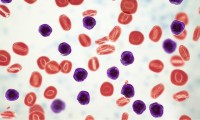-
Citing Ongoing Drug Shortages, Biden Administration Invokes Defense Production Act
- Source: drugdu
- 115
- November 30, 2023
-
Season Health Expands Provider Network Through Strategic Asset Acquisition from Wellory
- Source: drugdu
- 192
- November 30, 2023
-
Bayer’s stock drops to new 18-year low after asundexian trial termination
- Source: drugdu
- 107
- November 30, 2023
-
Acelyrin claims errors by CRO Fortrea led to late-stage trial downfall
- Source: drugdu
- 233
- November 30, 2023
-
FDA withdraws from Global Harmonization Working Party
- Source: drugdu
- 221
- November 29, 2023
-
Henry Schein reports more disruption as cyberattackers take credit
- Source: drugdu
- 204
- November 29, 2023
-
Phase 3 Clinical Trial for Dupixent Reports Significant Reduced COPD Exacerbations
- Source: drugdu
- 105
- November 29, 2023
-
Sanofi/Regeneron’s Dupixent shows promise in chronic obstructive pulmonary disease
- Source: drugdu
- 103
- November 29, 2023
-
AbbVie’s epcoritamab gets one step closer to follicular lymphoma approval
- Source: drugdu
- 95
- November 29, 2023
-
British biopharma applies for BLA for T-cell cancer therapy
- Source: drugdu
- 92
- November 29, 2023
your submission has already been received.
OK
Subscribe
Please enter a valid Email address!
Submit
The most relevant industry news & insight will be sent to you every two weeks.













